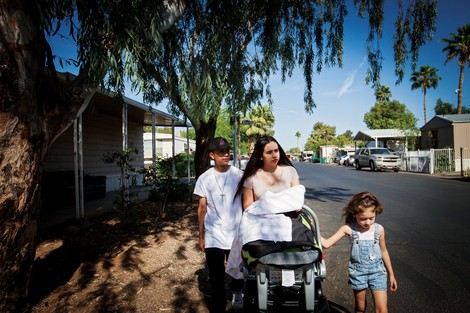Your podcast discovery platform
Curious minds select the most fascinating podcasts from around the world. Discover hand-piqd audio recommendations on your favorite topics.

piqer for: piqd Boom and bust Climate and Environment Global finds Globalization and politics Health and Sanity Technology and society Doing Good Deep Dives
Malia Politzer is the executive editor of piqd.com, and an award-winning long-form journalist based out of Spain. She specializes in reporting on migration, international development, human rights issues and investigative reporting.
Originally from California, she's lived in China, Spain, Mexico and India, and reported from various countries in Africa, Europe and the Middle East. Her primary beats relate to immigration, economics and international development. She has published articles in Huffington Post Highline, The Economist, The Wall Street Journal, Vogue India, Mint, Far Eastern Economic Review, Foreign Policy, Reason Magazine, and the Phoenix New Times. She is also a regular contributor to Devex.
Her Huffington Post Highline series, "The 21st Century Gold Rush" won awards from the National Association of Magazine Editors, Overseas Press Club, and American Society of Newspaper Editors. She's also won multiple awards for feature writing in India and the United States.
Her reporting has been supported by the Pulitzer Center on Crisis Reporting, The Institute For Current World Affairs, and the Global Migration Grant.
Degrees include a BA from Hampshire College and MS from Columbia University Graduate School of Journalism, where was a Stabile Fellow at the Center for Investigative Journalism.
Losing Gloria: A Heartrending Look At What Happens To Children When Their Parents Are Deported
This story took me on an emotional rollercoaster. First, I cried. Then, I felt angry. Then helpless. Then angry again—this time with determination: No children should have to go through what these children did. Quite simply, the immigration system needs to change.
In this heartrending California Sunday long read, reporter Lizzie Presser gives us an intimate look into the lives of four children—10-year-old Angel, 14-year-old Yesi, 15-year-old Evelyn and 7-year-old Brisa—after their mother, Gloria, is deported. At first, the children hide her disappearance from the world. They fear being separated by Child Protective Services, so manage as best they can so they can stay together.
Eventually, Child Protective Services finds out, and they are separated anyway. Yesi, wanting to feel loved, finds a boyfriend, gets pregnant, and ends up in a home for teenage mothers. Angel acts out with anger, and is put in a home for delinquent boys. Brisa stays with an aunt, leaving Evelyn on her own in Phoenix. But far more important than showing us what happens to the children, Pressner writes about how the children are irrevocably transformed. Angel is unable to sleep through a single night until more than a year later, when he is briefly reunited with his mother in Mexico. Before Yesi becomes pregnant, she purges her emotions through cutting. She suffers anxiety attacks, but fears to share them with anyone for fear they will take her child away.
In "Losing Gloria", Pressner succeeds in showing that the US immigration debate isn't just an economic policy issue—it's also deeply personal. There are more than a million American children like the Marin siblings who are left adrift after their parents are deported. Pressner's moving, emotional piece finally gives them a voice.
